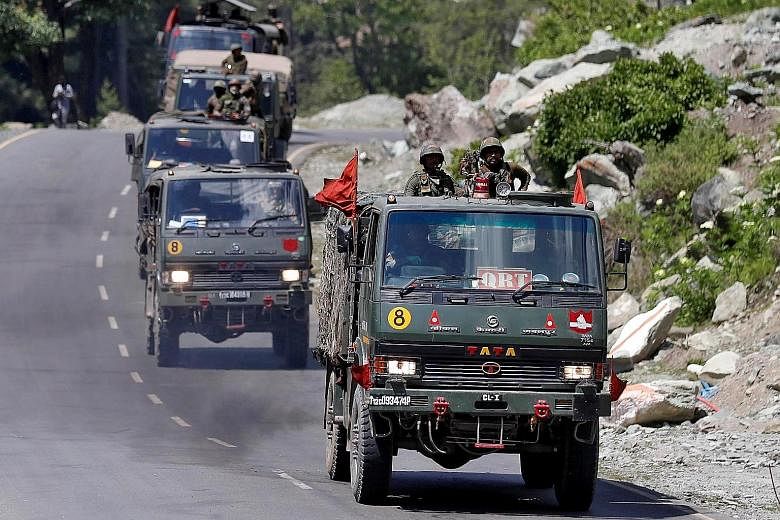Prime Minister Narendra Modi's statement that India has not ceded any territory or faced intrusions from China has triggered an intense debate within India amid concerns it could weaken India's negotiating position with China.
His remarks sparked questions from critics and others over what India was discussing in military and diplomatic talks with China, why the lives of 20 Indian soldiers were lost in a violent clash with Chinese soldiers and whether the spot where it took place was Chinese or Indian territory.
The questions forced a clarification from the Prime Minister's Office (PMO).
At a meeting with opposition leaders to explain the circumstances leading up to the face-off on Monday, Mr Modi said no one had entered Indian territory or captured Indian military posts.
His remarks came two days after External Affairs Minister S. Jai-shankar had told his Chinese counterpart Wang Yi in a telephone conversation that Chinese troops had tried to put up a structure in Galwan Valley on the Indian side of the Line of Actual Control (LAC), the de facto border between the two countries.
Amid the seemingly contradictory statements, the PMO in its clarification accused "some quarters" of "a mischievous interpretation". Congress leader Rahul Gandhi has been criticising the Prime Minister for not giving a clear account of events.
"As regards transgression of LAC, it was clearly stated that the violence in Galwan on June 15 arose because the Chinese side was seeking to erect structures just across the LAC and refused to desist from such actions," said the statement from the PMO.
"The Prime Minister's observations that there was no Chinese presence on our side of the LAC pertained to the situation as a consequence of the bravery of our armed forces."
Still, the mixed messaging from the government triggered many more questions than it answered.
Questions were raised over whether Chinese soldiers were pushed back from the spot of the violent clashes and on the content of military and diplomatic talks between the two sides if the Chinese were pushed back across the LAC.
"So confusing..." tweeted Mr Asaduddin Owaisi, MP from the All India Majlis-e-Ittehadul Muslim-een, noting that the Prime Minister's Office and External Affairs Minister seemed to be contradicting each other.
"Are the Chinese still in possession of territory at patrol point 14 in Galwan Valley, where 20 bravehearts were killed? Is this territory on the Indian side of the LAC or the Chinese?"
India and China, which went to war in 1962, have disputes along several areas of their undemarcated border, which has remained largely peaceful in the last 45 years.
The current row erupted last month after India accused China of changing the status quo in the region and moving troops into forward positions in at least four spots along the border, including the Galwan Valley and Pangong Tso Lake.
The two countries have continued military and diplomatic talks to resolve the intrusions in Galway Valley, which both sides claim.
Some analysts warned that the Prime Minister's statement, in spite of the clarification, would weaken India's position in negotiations with China.
"This is an ill-considered comment from the Prime Minister. It seriously undermines India's negotiated position on the Line of Control and the territorial dispute itself," said Indian journalist Ajai Shukla, a retired colonel of the Indian Army.
"It appears to be saying all the territory occupied by Chinese troops in the last 11/2 months are not Indian territories. In that sense, it goes back on long-held positions and dilutes India's claims."
China has maintained that the Galwan Valley, which was not earlier in dispute, is a part of Chinese territory. India has said the Chinese have no claims to the territory, which is in India.
In a series of tweets yesterday, Chinese Foreign Ministry spokes-man Zhao Lijian accused India of "violently" attacking "Chinese officers" on Monday.
An Indian Ministry of External Affairs spokesman yesterday counter-accused China of "exaggerated and untenable claims".
Some analysts, trying to explain the government's position, said that India was clearly trying to find a diplomatic way out of the face-off with China.
"Government has taken realistic view of constraints emanating from asymmetry of power with China," tweeted former foreign secretary Nirupama Rao.

